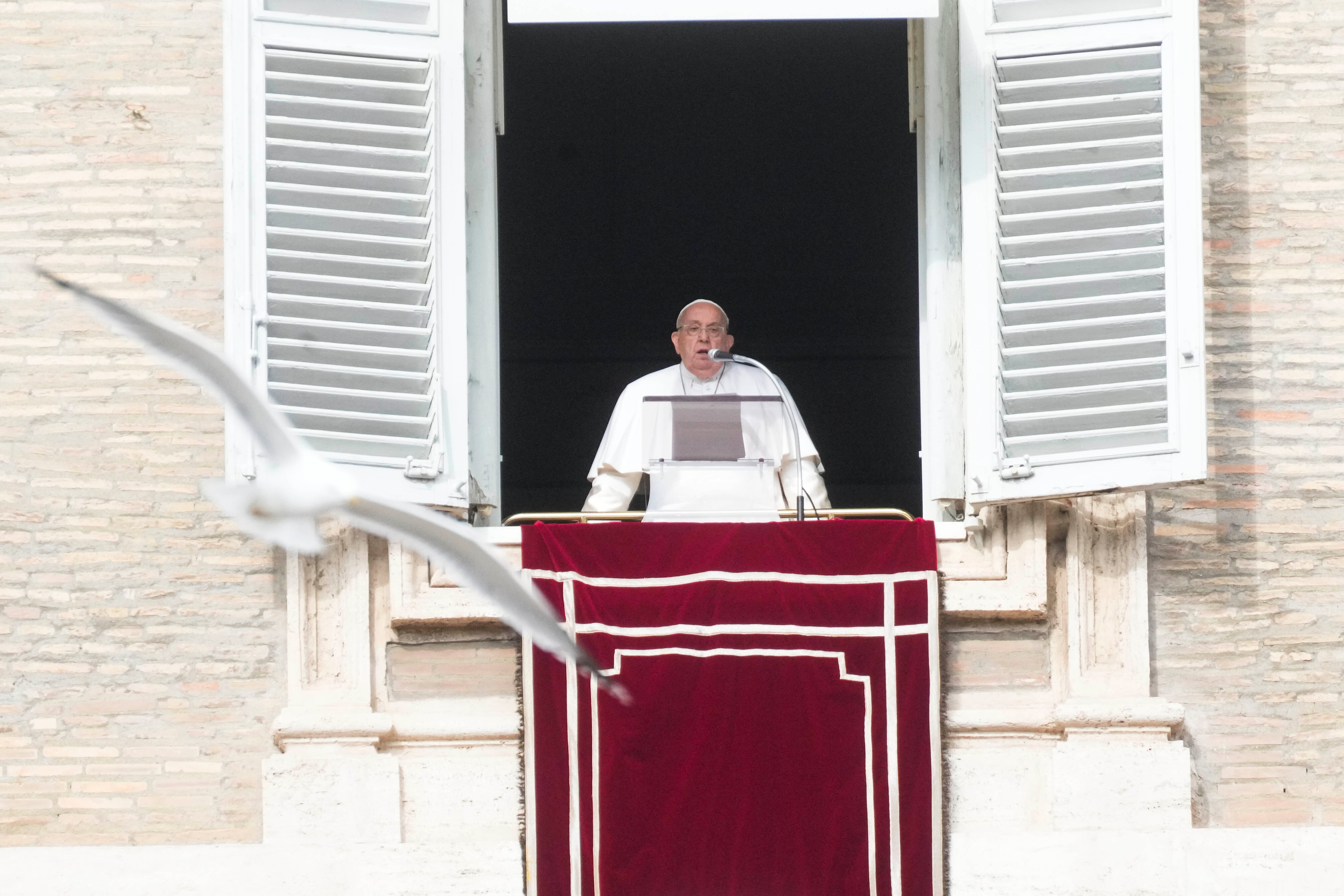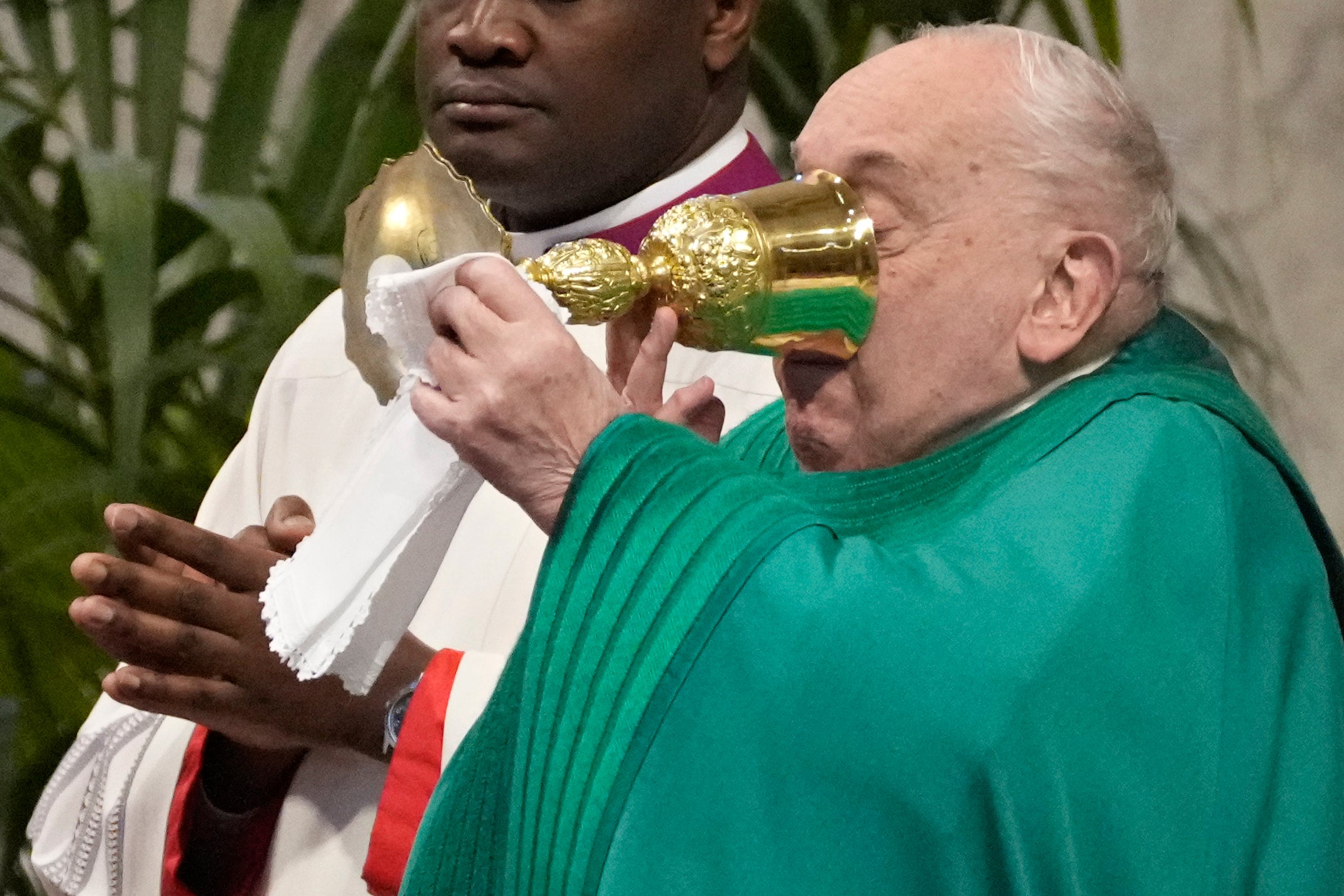Pope Francis issues AI warning as Vatican draws up new rules
The document warns that AI is not a substitute for ‘authentic human relationships’

Your support helps us to tell the story
From reproductive rights to climate change to Big Tech, The Independent is on the ground when the story is developing. Whether it's investigating the financials of Elon Musk's pro-Trump PAC or producing our latest documentary, 'The A Word', which shines a light on the American women fighting for reproductive rights, we know how important it is to parse out the facts from the messaging.
At such a critical moment in US history, we need reporters on the ground. Your donation allows us to keep sending journalists to speak to both sides of the story.
The Independent is trusted by Americans across the entire political spectrum. And unlike many other quality news outlets, we choose not to lock Americans out of our reporting and analysis with paywalls. We believe quality journalism should be available to everyone, paid for by those who can afford it.
Your support makes all the difference.A Vatican document released Tuesday offers wide-ranging ethical guidelines for the application of artificial intelligence in sectors from warfare to healthcare, with an underlying call that the burgeoning technology must be used as a tool to complement, and not replace, human intelligence.
Pope Francis has issued several warnings about the risks associated with AI technology, and this new document by the Vatican’s doctrine and cultural offices expands on what the pontiff has already said. It comes as a new AI chatbot by Chinese tech startup DeepSeek has raised the stakes in the AI technology race, catching up with American generative AI leaders at a fraction of the cost.
The document underlines that human responsibility needs to grow in proportion to the new technology, and that the impact of AI’s uses in various sectors “may not always be predictable from their inception.”
“AI should be used only as a tool to complement human intelligence, rather than replace its richness, the document said in its conclusion.

The document warns that AI has the potential to increase instruments of war “well beyond the scope of human oversight,” which could provoke “a destabilizing arms race.” Weapons systems that can identify and strike targets without human intervention, removing “the unique human capacity for moral judgement and ethical decision-making,'' it said.
“No machine should ever choose to take the life of a human being,'' the document warned.
AI and Human Relationships
The document warns that AI is not a substitute for “authentic human relationships,” and cites its lack of empathy as a risk when anthropomorphizing AI in areas such as child development or interpersonal relationships.
“While human beings are meant to experience authentic relationships, AI can only simulate them,” the document said.
AI and Search for Meaning
The document cites the risk that “as society drifts away from connection with the transcendent, some are tempted to turn to AI in search of meaning and fulfillment — longings that can only be truly satisfied in communion with God.”
“The presumption of substituting God for an artifact of human making is idolatry, a practice Scripture explicitly warns against,” the document said.
AI and <Surveillance
Advances in AI-powered data processing have made data privacy “even more imperative as a safeguard for the dignity and relational nature” of individuals, the document said.
“The risk of surveillance overreach must be monitored by appropriate regulators to ensure transparency and public accountability,’’ it said.
AI and the Environment
The document underlined that while AI can help fight climate change through models to forecast extreme events, help manage emergencies and help promote sustainable development, it also poses risks that are obscured by the use of words like “the cloud” that detach data storage “from the physical world.”
“It is crucial to recognize that its operation demands vast amounts of energy and water, contributing significantly to CO2 emissions,” the document said.
AI and Education
The document said that AI should help promote critical thinking, and not just train “young people how to amass information and generate quick responses.” Education is not about “filling one’s head with ideas,” but “is about taking a risk in the tensions between the mind, the heart and the hands,” it said.
“Schools, universities and scientific societies are challenged to help students and professionals to grasp the social and ethical aspects of the development and uses of technology,'' the document said.
AI and Healthcare
While citing the potential of AI to enhance medical care, such as in diagnosing illness, the document said it is critical that AI is used to enhance and not “replace the relationship between patients and healthcare providers.”
“Decisions regarding patient treatment and the weight of responsibility they entail must always remain with the human person, and should never be delegated to AI,’’ the document said.
AI and Misinformation/Deepfakes
AI presents a risk of “generating manipulated content and false information, which can easily mislead people due to its resemblance to the truth,'' the document said.
“Countering AI-driven falsehoods is not only the work of industry experts — it requires the efforts of all people of good will,'' it said, calling for diligence on the part of those who share AI-generated content to verify “the truth of what they disseminate.”